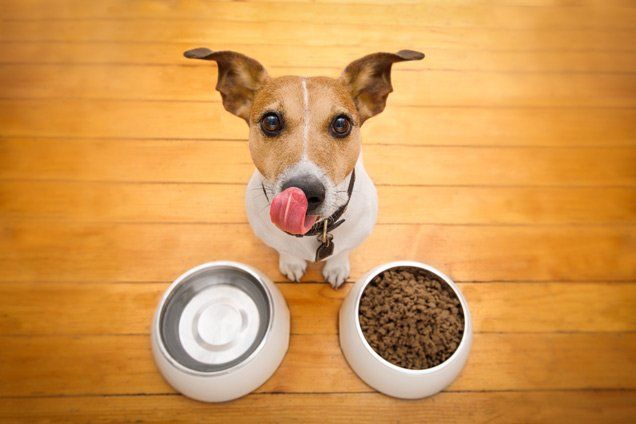How to Help Your Dog Stay Healthy as They Grow
16 May 2018

When you get a puppy, you need to put in a lot of hours of preliminary training. Housebreaking, kennel training, basic obedience, and good manners take time to teach. However, after you've mastered the basics, you still need to make sure that your puppy transitions to adulthood and stays healthy as the time passes.
Here's what every dog owner needs to know about how puppies grow and how a dog's needs change. Your dog will have optimal physical and behavioral health if you know what to expect every step of the way.
Nutritional Needs
One of the major changes that you will see as your puppy grows is their nutritional needs. Puppies experience explosive growth, and as a result, they are both highly energetic and nearly always hungry. Puppies need to be fed frequently, and they will nearly always finish their meal.
Puppy food is formulated to help foster this rapid stage of growth and meet the increased demand for calories. However, as a dog's growth slows, their need for nutrition shifts. They do not need to eat as much, and their food does not need to be as calorie dense.
Reducing your dog's food intake is important because obesity is a major issue with household pets. As your puppy reaches their adult size, be consistent about feeding times, and cut back on frequent meals. Try to use special treats for training only; don't use them as stand-ins for snacks.
Be sure you feed your dog the right food for their age and their breed. Some larger breeds of dog, for example, need less protein in their diet during puppyhood. Too much protein causes overly rapid growth, resulting in adult-onset arthritis. Not all foods are created equal, and your vet
can give you breed-specific feeding direction.
Behavioral Challenges
Another sign of growing up is a change in behavior. While clumsy, destructive, and playful, puppies are eager to please and also easily corrected when misbehaving. As they near maturity, however, they may show a more forceful side of their personality as they seek greater independence.
Now is the time to assert yourself as the master in the relationship. Curb even small signs of aggression, including growling and barking, during this time to show what is and is not acceptable. Take this opportunity to teach your puppy that some behavior is always wrong, including jumping up on people and being protective of toys or possessive of food.
Although these behaviors may seem cute, don't give into the temptation to indulge them; all puppies grow into dogs, and behavioral problems are harder to correct later. Dogs sometimes end up in shelters as adults because bad habits learned during puppyhood were never addressed when they should have been.
Dental Care
Puppies have baby teeth just like humans do. They gain their permanent teeth within the first year of life, and dental care is an important aspect of your dog's overall health. Many owners do not realize the importance of brushing their dog's teeth, but you can prevent costly infections, bad breath, and tooth pain with some simple preventative maintenance.
To make brushing routine, start early. Every week - or even every time you brush your dog - use the toothbrush to remove buildup. This way, you dog learns to sit for brushing early on, and it becomes routine.
Grooming
Finally, dogs lose their babyhood fur, which is softer and fluffier than the adult coat. After the adult coat grows in, your dog may shed more often and need more grooming than they did as a puppy, especially if they have long hair.
Brushing helps to prevent mats from forming in the coat, but it also helps you detect ticks, burrs, skin irritation, and dryness. You can also help prevent injuries to the paws by removing stones and cleaning off road salt after walks.
For more information about how to raise your puppy, contact Pet Medical Center Of Vero Beach.
If left untreated, roundworms and hookworms can cause serious health problems for your pet. Read about the signs in this blog and how to take action.
Many pet owners overlook the importance of dental health in their pets. Read this blog to learn why dental health is so important for your animal companion.
Your beloved pets, whether our loyal canines or our independent felines, play an integral role in your life. Read on to learn how to manage their stress.
Dogs can suffer from a plethora of digestive issues. But how can you tell if your pup has any digestive issues? Discover some key signs to look out for.
A tick’s bite can spread deadly diseases to you and your pet. Learn about a few tick-borne conditions your pet may contract if they spend time outside.
Has your animal's hair changed? Discover what this might mean and if your best friend might need treatment for their potential problem.
Prepare your puppy for its first vet visit to avoid challenges during a medical examination. This post highlights five ways to help your puppy.
If your dog is pregnant, you might feel unprepared. Read this blog to learn everything you should know about canine pregnancy, labor, and delivery.
A surgery is an invasive procedure that requires preparation to ease your cat and ensure a smooth recovery. Discover tips to prepare your cat for surgery.
Just like humans, pets can face various health issues. Learn about the most common conditions that pets face and how to avoid and treat them.





